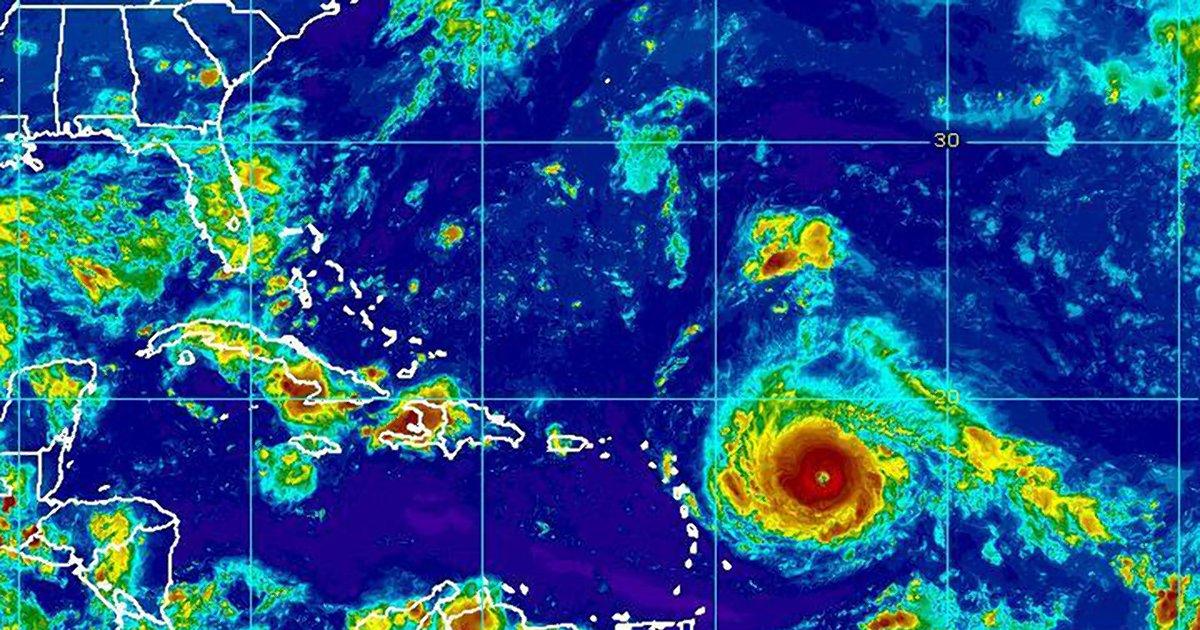The tropical stormes should be a warning to Trump’s intents. Hurricanes are hitting the USA one by one. After Harvey storm that hit Texas, hurricane Irma is already battering in Florida. It has set records for being the strongest hurricane to have occurred in the open Atlantic, and for having sustained wind speeds of at least 185mph over the longest period. After plowing a path of destruction through the Caribbean, at least 25 people died, now forcing hundreds of thousands to flee in one of the largest evacuations in American history, Hurricane Irma began to maul southern Florida.
Greg Abbott, governor of Texas, called Harvey “one of the largest disasters America has ever faced”. Those losses are nothing compared to what we’ll have with Irma. “This is a deadly storm, and our state has never seen anything like it,” Scott, governor of Florida, said in press conference. “Millions of Floridians will see major hurricane impacts with deadly storm surge and life-threatening winds.” Although Irma’s winds could cause major damage to structures and power lines, officials say the amount of water they could bring ashore is one of the biggest risks. The storm is so vast, stretching more than 300 miles, and so powerful, with winds reaching 130 miles an hour, that virtually no place in southern Florida could be considered completely out of danger.

The question of whether human-caused climate change might have contributed to what is the worst floods in the history of the United States is already circulating. Some scientists have pointed to the current tropical storms as further evidence of the dangers of climate change.
Climate scientists say singling out these hurricanes as a global-warming-driven anomaly would be a mistake. But they also argue that climate change can worsen the hurricanes that do occur. Precipitation events have been on the rise in recent decades and several have been shown to be more likely because of climate change. Penn State University professor of meteorology, Michael Mann, state that warming temperatures “worsened the impact” of the storm. Human-caused climate warming increased the intensity of the torrential rains by at least 10 percent, according to a team of NOAA (National Oceanic and Atmospheric Administration) and partner scientists with World Weather Attribution. The same report stated that it is likely that these events had been raised by global warming.
A warmer atmosphere can hold more water vapour, which can result in heavier rainfall. That is true not only for hurricanes but also for weaker storms across the world. Average sea surface temperatures have been rising, and some parts of the North Atlantic and Gulf of Mexico are warmer than average at the moment, which is a key reason why both Harvey and Irma became so strong so quickly.
Despite all this data, according to the National Oceanic and Atmospheric Administration, it is “premature” to conclude that there has already been an increase in Atlantic-born hurricanes due to temperatures that have risen globally. However, researchers are also increasingly certain that the warming of the atmosphere and oceans is likely to fuel longer or more destructive hurricanes. While the number of hurricanes may actually fall, scientists warn the remaining events will likely be stronger.
While it all seems purely to do with technical matters, there are nonetheless considerable political implications and politics can also be affected by matters of organisation that highlighting in particular the health risks for people.
Barack Obama’s administration established the Federal Flood Risk Management Standards, a rule that sought to flood-proof new federal infrastructure projects by demanding they incorporate the latest climate change science. Obama’s regulation meant roads, buildings and other infrastructure needed to be constructed to take climate change into account and be built to withstand the effects of such climate change, including rising sea levels in coastal areas. Last month, Trump announced he would scrap the rule.
In defiance of the spirit of this important Directive, conservative groups have mobilized to downplay or mock any association between the storm and climate change. The Heartland Institute, a prominent conservative group that produced a blueprint of cuts to the EPA that has been mirrored by the Trump administration’s budget, quoted a group of scientists to ridicule the climate change dimension of tropical stormes.
President Trump has called climate change a “hoax” that was cooked up by the Chinese to hurt the American economy. He pulled the U.S. out of the Paris climate agreement this spring and he is preventing NASA’s climate change studies.
We can agree that directly attributing these individual weather events to global warming is a tricky undertaking for scientists. But in the meantime in USA thousands of people are homeless and are without work. In South Asia monsoon rains and heavy flooding have killed upwards of 1,400 people in the past month, affecting 40 million people across the region.
The US face its second major weather disaster within a month. The question is whether the devastation caused by hurricanes Harvey and Irma will convince Donald Trump and his administration of the reality of climate change. With the deaths of Americans and billions of dollars in damage to homes and businesses, the costs of climate change denial are beginning to pile up at the door of the White House. The assault by Harvey and Irma should be forcing the president to recognise the consequences of his arrogance in dismissing the scientific research.







1 comment for “Hurricanes, climate change and human responsibilities”